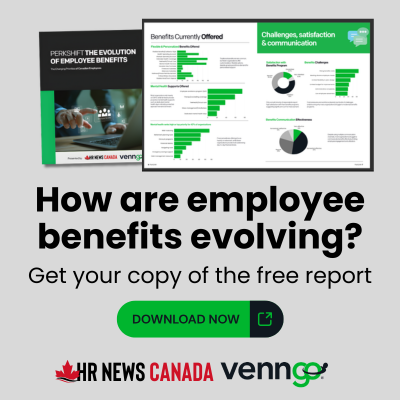In a ruling of interest to employers using third-party recruiters, the British Columbia Supreme Court has ruled that Mac’s Convenience Stores is vicariously liable for the breach of fiduciary duty committed by its agent, Overseas Immigration Services, in charging prohibited fees to temporary foreign workers recruited under the Canadian Temporary Foreign Workers Program (TFWP).
The class action involves individuals recruited overseas by Overseas and Trident Immigration Services to work for Mac’s. The representative plaintiffs allege that Overseas charged them fees prohibited by statute for securing employment. Additionally, a subclass of plaintiffs entered into employment contracts with Mac’s but arrived in Canada to find no jobs available.
The plaintiffs sought a summary trial to determine whether Mac’s is vicariously liable for Overseas’s breach of fiduciary duty. Mac’s, in turn, sought a summary trial to decide if the subclass members had a duty to mitigate their losses by seeking alternative employment when their contracted jobs did not materialize, and whether any earnings during the notice period should be deducted from damages.
Suitability for summary trial
The court considered whether the matters were suitable for summary trial under Rule 9-7(15)(a) of the Supreme Court Civil Rules. Despite some evidentiary conflicts, it concluded that it could find the necessary facts to decide the issues summarily. Both parties agreed that the matters were appropriate for summary determination.
Vicarious liability for breach of fiduciary duty
The central question was whether Mac’s could be held vicariously liable for Overseas’s breach of fiduciary duty in charging prohibited fees. Mac’s argued that as a principal who is not a fiduciary, it could not be held liable for its agent’s breach of fiduciary duty. The plaintiffs contended that vicarious liability can extend to breaches of fiduciary duty committed by an agent.
The court reviewed legal principles surrounding vicarious liability, noting that it is a doctrine where one person is held responsible for another’s misconduct due to their relationship. The policy considerations include fair compensation, deterrence, and loss internalization.
The court acknowledged that while there is no direct authority from the Supreme Court of Canada on whether vicarious liability applies to breaches of fiduciary duty by an agent, British Columbia jurisprudence has accepted that it can. The court stated, “I conclude that law allows for equity to borrow from the common law to provide fair and reasonable redress and therefore vicarious liability should be able to attach to breach of fiduciary duty so long as the necessary connections required for vicarious liability exist.”
Agency relationship between Mac’s and Overseas
The court examined whether Overseas acted as Mac’s agent in recruiting the class members. Evidence showed that Mac’s engaged Overseas to “assist Mac’s in filling labour needs with foreign workers in Corporate Stores and Corporate Food Service Operations in the Western Region.” Overseas’s services included pre-screening candidates, recruitment, arranging interviews, and completing necessary immigration documents.
Mac’s appointed Overseas as its representative to submit labour market opinion applications, as evidenced by forms entitled “Appointment of a Third Party Representative.” The court found that Mac’s and Overseas had an agreement wherein Overseas would act as Mac’s agent in recruiting temporary foreign workers.
Application of vicarious liability
Applying modified factors from Bazley v. Curry, the court assessed whether Mac’s should be held vicariously liable:
- Opportunity for abuse of power: Overseas’s role as Mac’s agent provided the opportunity to charge prohibited fees.
- Furtherance of principal’s aims: The fees charged by Overseas were in furtherance of Mac’s goal of filling job positions with temporary foreign workers.
- Relation to principal’s enterprise: The wrongful acts were related to the recruitment process inherent in Mac’s enterprise.
- Extent of authority conferred: Mac’s granted significant authority to Overseas, including acting on its behalf in recruitment and immigration processes.
- Vulnerability of victims: The class members were vulnerable individuals seeking employment in Canada, reliant on Overseas and Mac’s.
The court concluded, “Considering these factors, I conclude that Mac’s ought to be held vicariously liable for Overseas’s breach of fiduciary duty in charging the Overseas’s fees.”
Duty to mitigate and deductibility of earnings
Regarding Mac’s application on the duty to mitigate, the court addressed whether subclass members were required to seek alternative employment when their jobs did not materialize and whether any earnings should be deducted from damages.
The subclass members were bound by work permits limiting them to employment with Mac’s. The court found that seeking alternative employment would have required them to act unlawfully or engage in a lengthy process to obtain new permits, which was unreasonable. Therefore, the court held, “I conclude that…the contracts must be interpreted to oust the duty to mitigate.”
However, on the issue of deductibility, the court noted that British Columbia law allows for actual mitigation earnings to be deducted from damages if there is no liquidated damages clause or agreement to the contrary. The court stated, “Having concluded that, and given the lack of a liquidated damages clause, any earnings of the subclass members during the notice period are deductible.”
Conclusion
The British Columbia Supreme Court answered the common issues as follows:
- Vicarious liability: Yes, Mac’s is vicariously liable for Overseas’s breach of fiduciary duty.
- Duty to mitigate: No, subclass members were not required to mitigate their losses.
- Deductibility of earnings: Yes, Mac’s is entitled to set off salary earned by subclass members during the notice period.
For more information, see Basyal v Mac’s Convenience Stores Inc., 2024 BCSC 2007 (CanLII).





